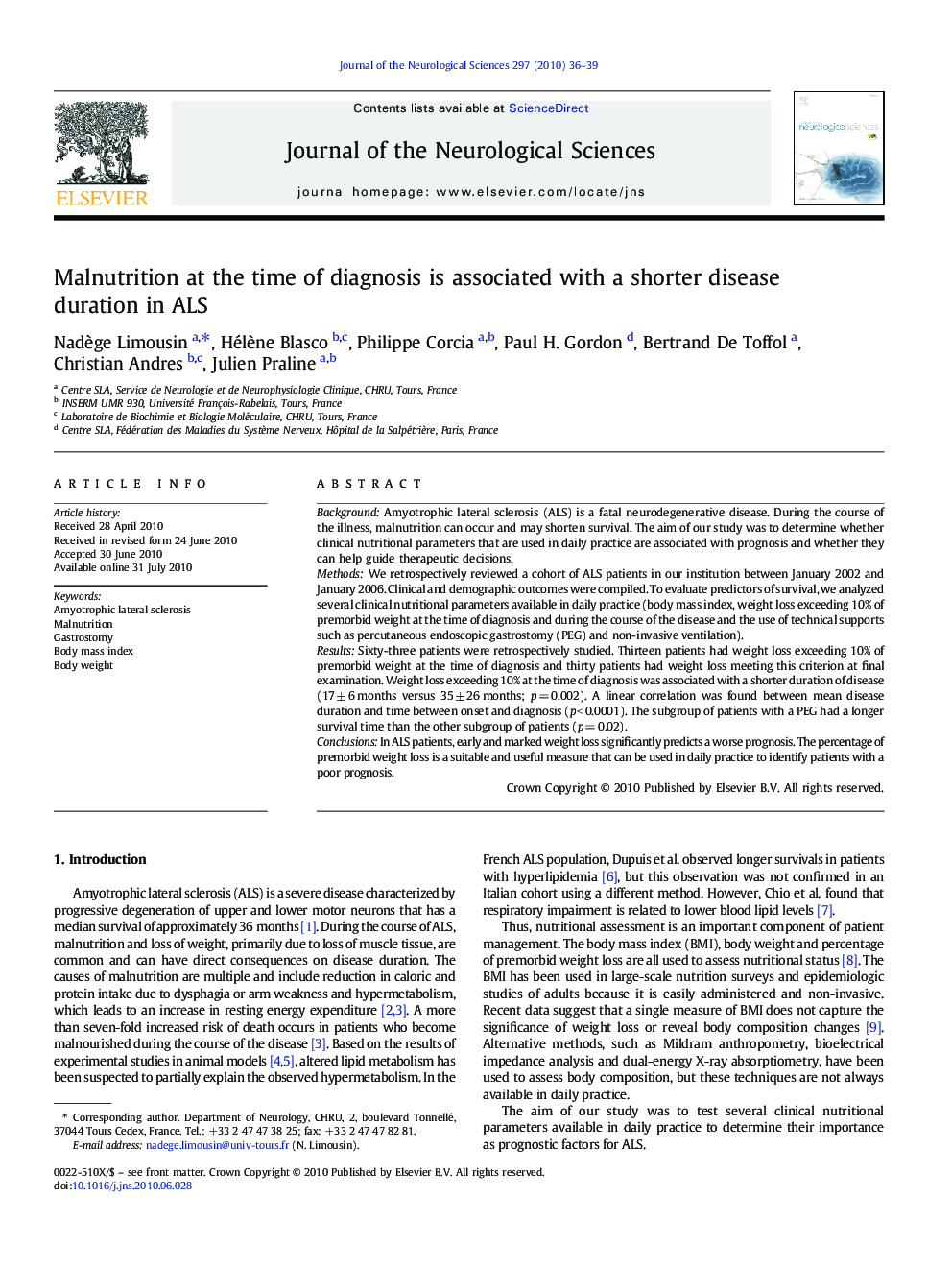| Article ID | Journal | Published Year | Pages | File Type |
|---|---|---|---|---|
| 1914688 | Journal of the Neurological Sciences | 2010 | 4 Pages |
BackgroundAmyotrophic lateral sclerosis (ALS) is a fatal neurodegenerative disease. During the course of the illness, malnutrition can occur and may shorten survival. The aim of our study was to determine whether clinical nutritional parameters that are used in daily practice are associated with prognosis and whether they can help guide therapeutic decisions.MethodsWe retrospectively reviewed a cohort of ALS patients in our institution between January 2002 and January 2006. Clinical and demographic outcomes were compiled. To evaluate predictors of survival, we analyzed several clinical nutritional parameters available in daily practice (body mass index, weight loss exceeding 10% of premorbid weight at the time of diagnosis and during the course of the disease and the use of technical supports such as percutaneous endoscopic gastrostomy (PEG) and non-invasive ventilation).ResultsSixty-three patients were retrospectively studied. Thirteen patients had weight loss exceeding 10% of premorbid weight at the time of diagnosis and thirty patients had weight loss meeting this criterion at final examination. Weight loss exceeding 10% at the time of diagnosis was associated with a shorter duration of disease (17 ± 6 months versus 35 ± 26 months; p = 0.002). A linear correlation was found between mean disease duration and time between onset and diagnosis (p < 0.0001). The subgroup of patients with a PEG had a longer survival time than the other subgroup of patients (p = 0.02).ConclusionsIn ALS patients, early and marked weight loss significantly predicts a worse prognosis. The percentage of premorbid weight loss is a suitable and useful measure that can be used in daily practice to identify patients with a poor prognosis.
